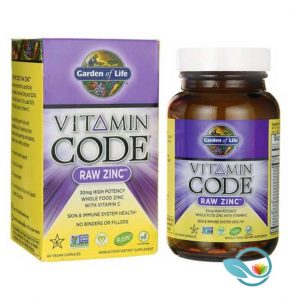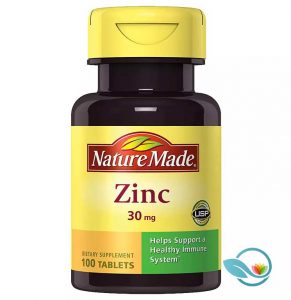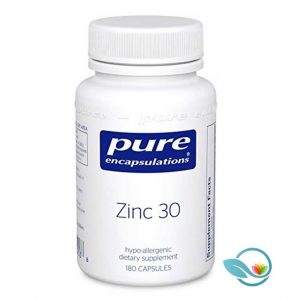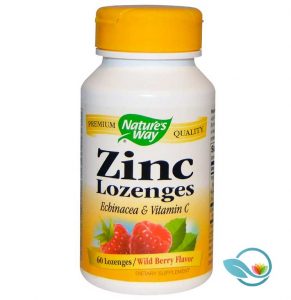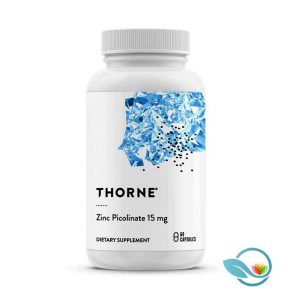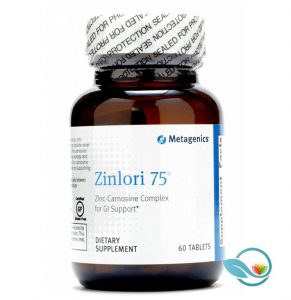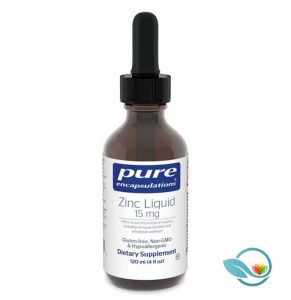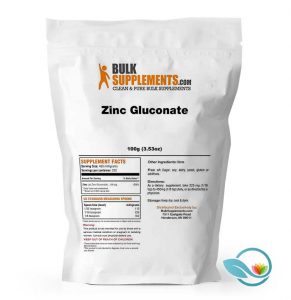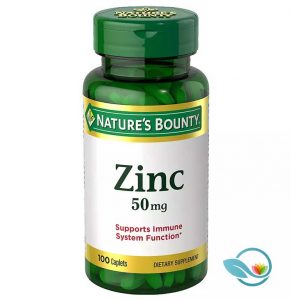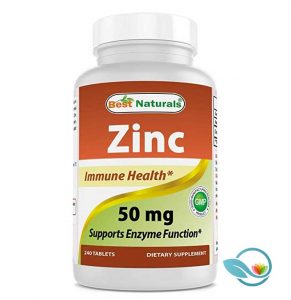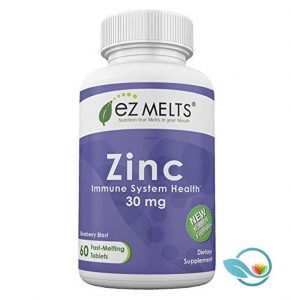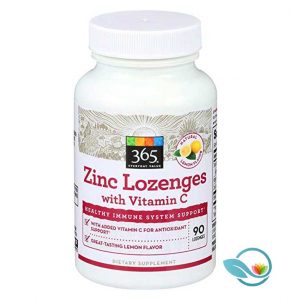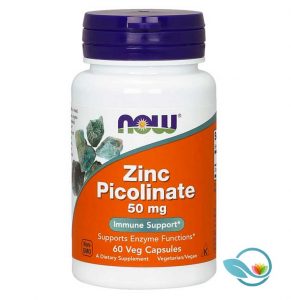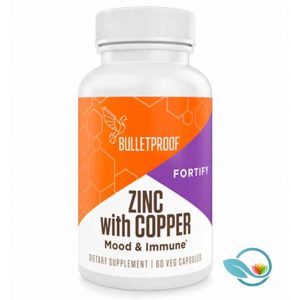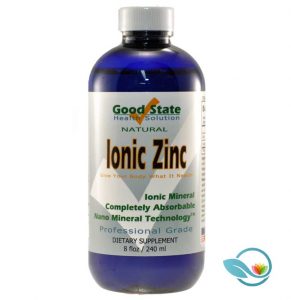Vitamins
Best Zinc Supplements of 2019
Published
5 years agoon
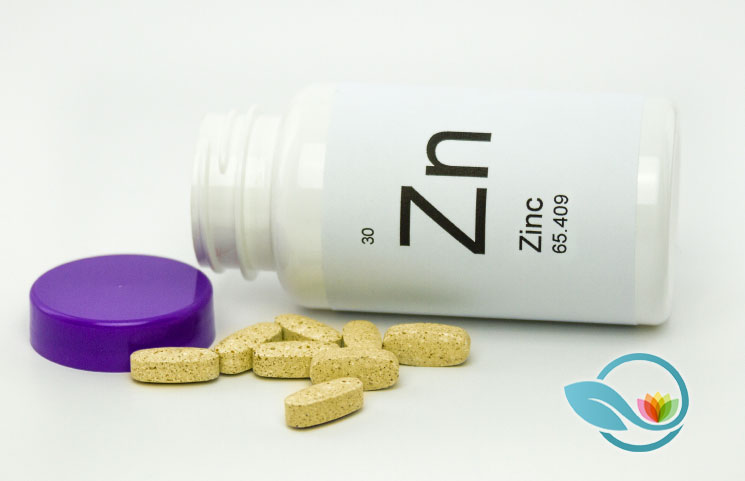
Zinc is a crucial mineral involved in multiple body functions. Zinc influences testosterone production, for example, and aids in a well-functioning immune system.
Many of us don’t get enough zinc from our diets. That’s why some people have started taking zinc supplements. A zinc supplement may support testosterone production, immune system health, and muscle building, among other body functions.
With so many zinc supplements available on Amazon and other retailers, it can be difficult to know which zinc supplement is right for you. What’s the best zinc supplement of 2019? Keep reading to find out.
Our Top Picks
Garden of Life Vitamin Code Raw Zinc
Garden of Life makes some of the most popular nutritional supplements on Amazon. The company’s Vitamin Code Raw Zinc supplement, however, is particularly well-rated. The supplement has an average rating of 4.5 stars out of 5 on Amazon with 500+ reviews. It’s also an “Amazon’s Choice” product in the zinc category.
Each capsule contains 30mg of “high potency whole food zinc” with vitamin C. Each two capsule serving (30 servings / 60 capsules per container) includes 60mg of vitamin C (100% of your recommended Daily Value) and 30mg of zinc (200% of your recommended Daily Value).
But what really sets Garden of Life apart from its competitors is the use of an organic fruit and vegetable blend, a mineral blend, and a probiotic and enzyme blend. The formula has dozens of ingredients like organic apple, organic beet, organic broccoli, and organic carrot along with digestive enzymes, spirulina, trace minerals, and more.
You get all of these ingredients for just $10 per bottle (30 servings per bottle) on Amazon, making Garden of Life’s Vitamin Code Raw Zinc supplement one of the top options available today.
Nature Made Zinc
The Garden of Life zinc supplement above is great – but it also contains far more than just zinc. If you want a more straightforward zinc supplement, then Nature Made Zinc ma be the right choice. Each tablet contains 30mg of zinc as zinc gluconate (200% of your recommended Daily Value).
Each bottle of Nature Made Zinc includes 100 tablets at a price of around $6, making this one of the best-value zinc supplements on this list.
Pure Encapsulations Zinc
Pure Encapsulations Zinc contains 30mg of zinc (as zinc picolinate) in each one capsule serving. There are 60 servings (60 capsules) in each bottle, priced at around $13 per bottle from Amazon.
The zinc is packaged into a vegetarian capsule. The formula is gluten-free, non-GMO, vegetarian, and vegan. Pure Encapsulations claims by taking the supplement daily, you can support a healthy immune system.
Nature’s Way Zinc Lozenges
Nature’s Way Zinc Lozenges are for those who don’t like swallowing tablets or capsules, but still want to get their recommended daily dose of zinc. Nature’s Way’s lozenges are available in wild berry flavor. They’re also very affordable, priced at under $4 on Amazon for a bottle containing 60 lozenges.
Each Nature’s Way Zinc Lozenge includes 100mg of vitamin C (167% of your recommended Daily Value), 23mg of zinc (153% DV), 20mg of echinacea powder, and 3mg of dried stevia leaf extract. Many people appreciate the good taste of the lozenge. The dosage is slightly smaller than the average zinc tablet (23mg in the lozenge instead of 30mg in most capsules).
Thorne Research Zinc Picolinate
Thorne Research’s Zinc Picolinate supplement claims to support healthy testosterone metabolism and a healthy prostate gland while also supporting growth and immune function. Each capsule contains about half as much zinc as other zinc supplements here (15mg of zinc in each capsule instead of 30mg used in most other supplements).
There are 60 capsules in each bottle, with each bottle priced at around $10. In terms of price per mg of zinc, Thorne Research’s formula is one of the worst value supplements on this list. However, Thorne Research claims their formula uses “highly absorbable zinc” made from “the purest possible ingredients”.
Metagenics Zinlori 75
The Metagenics Zinlori 75 zinc supplement uses a zinc-camosine complex to support your gastrointestinal health. Most other zinc supplements on this list claim to support immune health or testosterone, but this is the first to support “a healthy gastric microbial balance” according to the Amazon description.
Each tablet contains 75mg of zinc-carnosine, giving you a total 17mg of zinc (107% your DV) in each serving. There are 60 tablets in each container. There are no other listed ingredients.
Because Metagenics uses zinc-carnosine, there’s a big price difference compared to other supplements on this list. Amazon sells one bottle (60 servings) for $70. However, some people swear by zinc-carnosine and claim it’s the only thing that soothed their digestive health.
Pure Encapsulations Zinc Liquid
We mentioned the ordinary Pure Encapsulations zinc tablet supplement above. The company also makes, however, a popular liquid zinc formula. Pure Encapsulations claims their formula “offers broad physiological support” and can support immune function and emotional wellness.
The gluten-free, non-GMO, hypoallergenic liquid delivers 7.5mg of zinc (68% of your Daily Value) in each two full drop serving (60 servings per container). Pure Encapsulations also recommends taking four full drops per day to get 15mg of zinc (136% of your Daily Value).
You can mix the liquid with water, a shake, or the beverage of your choice. Some people claim to mix it with juice, for example. Each bottle is priced at around $35 from Amazon, making this more expensive than many other zinc supplements on this list.
BulkSupplements Zinc Gluconate Powder
BulkSupplements.com sells a range of popular nutritional supplements in bulk, powdered form. Instead of taking it in a capsule, tablet, or liquid, you can use this powder to take zinc however you want.
The supplement is sold in 250g ($13), 1kg ($22), and 5kg ($95) varieties on Amazon. Each 450mg serving (555 servings per container) contains 64mg of zinc, or 426% of your recommended Daily Value.
In terms of value per mg, it’s tough to compete with BulkSupplements Zinc Gluconate Powder. It’s the best-value zinc supplement on this list. The main drawback, of course, is that you need to be careful with your dosage. Because the recommended Daily Value of zinc is so small, you should ideally use a micro-scale to weigh the bulk dosage.
Nature’s Bounty Chelated Zinc
Nature’s Bounty is one of the better-known supplement makers online and in retail stores. Their Chelated Zinc supplement delivers 50mg of zinc in each dose, which is more than most other zinc supplements on this list.
Each caplet (100 caplets per container) includes 50mg of zinc as zinc gluconate, or 455% of your recommended Daily Value. Nature’s Bounty claims their formula supports metabolism, promotes immune system function, and “assists in the formation of DNA”.
Best Naturals Zinc
The Best Naturals Zinc supplement is one of two supplements on this list with 50mg of zinc in each serving (most have 15mg to 30mg of zinc). Each tablet contains 333% of your recommended Daily Value of zinc (as zinc gluconate) packaged into a vegetable capsule.
It’s also priced at a reasonable $9 per bottle, with each bottle containing 240 servings (240 tablets). That makes Best Naturals the best-value zinc supplement on this list. No other zinc supplement comes close to delivering the same amount of zinc at this price.
EZ Melts Zinc
EZ Melts Zinc claims to support immune system health by delivering 30mg of zinc in each capsule (60 capsules / 60 servings per bottle). That’s 200% of your recommended Daily Value of zinc in each tablet.
Unlike most other supplements on this list, which come in the form of capsules or tablets, EZ Melts Zinc comes in the form of a fast-melting, “blueberry blast”-flavored tablet. The formula claims to promote protein synthesis and healthy hormone levels.
The supplement has a similar dosage and capsule count as other supplements. However, the price is slightly higher at $16 per bottle from Amazon. Some are willing to pay extra for a good-tasting zinc supplement.
365 Everyday Value Zinc Lozenges with Vitamin C
365 Everyday Value makes a popular zinc lozenge supplement that delivers zinc and vitamin C with a great-tasting lemon flavor. A bottle containing 90 lozenges (90 servings) is priced at around $7.50. Each lozenge contains 100mg of vitamin C (110% of your recommended Daily Value) and 23mg of zinc (210% of your Daily Value).
There’s 1g of sugar in each lozenge. 365 Everyday Value also uses stevia extract as a sweetener. In addition to being listed on Amazon, these zinc lozenges are available from Whole Foods and other major retailers.
NOW Zinc Picolinate
NOW’s Zinc Picolinate supplement delivers a strong dose of zinc (50mg) in each capsule at a reasonable price ($8 for a bottle containing 120 veggie capsules). Few other supplements on this list offer a similar dose of zinc at such a reasonable price.
NOW is also one of the more reputable nutritional supplement manufacturers available today. The company makes its zinc supplement – and other supplements – in the United States in a cGMP-certified, FDA-registered facility. NOW Is also one of the longest-running supplement makers in the industry: the family-run company has been making supplements since 1968.
Bulletproof Zinc with Copper
Bulletproof is known for making higher-priced supplements that use higher-quality ingredients. The Bulletproof Zinc with Copper supplement is priced at $13 for a bottle containing 60 veggie capsules.
Each capsule contains 15mg of zinc as zinc orotate (136% of your Daily Value) along with 2mg of copper as copper orotate (222% of your Daily Value).
Bulletproof claims the combination of copper and zinc will help maintain immune function, aid in healthy hormone balance, support a healthy, mood, and support energy production, among other health benefits.
In terms of the value per dose, Bulletproof’s zinc supplement is more expensive than most other formulas. However, it also includes plenty of copper as well – something no other zinc supplement on this list includes.
Good State Ionic Zinc
Good Stats Ionic Zinc is a liquid zinc formula made with “nano mineral technology”. Each 10 drop serving (100 servings per container) includes 15mg of zinc (from zinc sulfate).
Good State recommends taking ten drops daily with 12 oz of water or juice. If you don’t like taking tablets or capsules but still want a strong daily dose of zinc, then Good State Ionic Zinc may be the right choice for you. Each bottle is priced at around $19 from Amazon.
How We Rank
At first glance, the zinc supplements listed above might all seem identical. Most contain 15mg to 50mg of zinc, for example, making it easy for you to get your recommended Daily Value (DV) of zinc in the form of a capsule, tablet, liquid, or lozenge.
However, there are considerable differences between then zinc supplements above. Here are some of the ranking factors we took into consideration to compile the rankings above:
- Zinc Dosage: You’re taking a zinc supplement. You want a strong dose of zinc. The supplements above contained between 15mg and 50mg of zinc in each serving.
- Price and Value: Some zinc supplements are strangely expensive. They deliver the same dose of zinc but at twice the price of competing supplements. We featured a range of zinc supplements for all different budgets.
- Water-Soluble: A good zinc supplement uses a water-soluble form of zinc, which means the zinc doesn’t have to be dissolved by your stomach acid to be absorbed by your body. Zinc oxide, for example, tends to dilute the acidity of your stomach in a different way than other zinc supplements on this list.
- Delivery Method: Zinc supplements come in the form of lozenges, capsules, tablets, liquids, and other delivery methods. We featured a range of zinc supplements in multiple forms.
- Third Party Testing: It’s easy to claim your zinc supplement contains 50mg of zinc. However, unless the zinc supplement is independently tested by a third party lab, it’s tough to definitively state it contains the advertised dose of zinc.
- Type of Zinc: Different types of zinc are absorbed by your body in different ways. Zinc picolinate, for example, tends to have better bioavailability than zinc gluconate. We’ll discuss more about the different types of zinc and their bioavailability below.
- Advertised Benefits: Some zinc supplements claim to cure you of various diseases and illnesses. Others simply claim to support immune system health or testosterone production. We were wary of zinc supplements making big claims about their benefits.
- Label Transparency: We prefer supplements with clear, transparent labeling instead of proprietary formulas. This wasn’t a problem for the zinc supplements listed above, although we still appreciated a clear and transparent label.
- Manufacturer Reputation: Some of the supplement makers above have been making zinc supplements for decades. Others have an unproven reputation and only emerged in the last few years. We weren’t biased towards old or new supplement makers. However, we preferred manufacturers with a good reputation.
Who Should Take Zinc?

People take zinc supplements for a variety of reasons.
Many men take zinc, for example, to maintain healthy testosterone production. Zinc is closely linked to testosterone production in the body. Men who are deficient in zinc tend to have lower levels of testosterone.
Other people take zinc to boost or maintain their immune system. Some people wait until they’re sick to take a zinc supplement: studies have shown that zinc can reduce the severity of a cold, for example, if you take it immediately after you start noticing symptoms.
It’s not clear why some men are deficient in zinc. However, it appears that men may develop zinc and other mineral deficiencies with age.
Of course, zinc is part of a healthy diet for both men and women. If you feel you’re not getting enough zinc in your diet, then you may wish to take a zinc supplement.
Benefits of Zinc
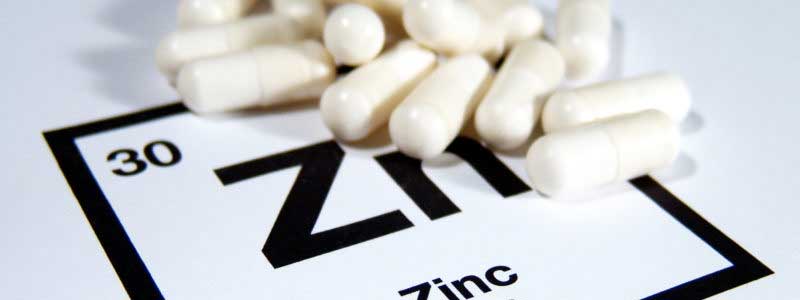
Zinc is a critical trace mineral. It has been studied extensively over the years. Certain health benefits of zinc have been witnessed in multiple studies.
Zinc appears to help you recover from a cold more quickly. If you take a zinc supplement when symptoms begin, you may reduce cold symptoms.
This study published in Pediatrics in 1998 examined the effect of zinc on infants and preschool children. Researchers supplemented the children’s diets with 10mg of zinc in a double-blind, controlled trial.
After six months of monitoring the infants and preschool children, researchers found that illness rate was significantly lower in the zinc group compared to a placebo. They found that supplementing a diet with 10mg of zinc could decrease the likelihood of illness. Zinc was particularly effective for reducing the incidence of acute lower respiratory infections.
Researchers also found that the rate of zinc deficiency in the zinc group decreased significantly throughout the study. 36% of children had low zinc levels in their blood at the beginning of the study. By the end of the study, only 12% had low zinc levels.
Zinc’s ability to fight upper respiratory infections was reinforced in this 1989 study by researchers at the University of Pennsylvania School of Medicine. Researchers split 174 patients with diagnosed upper respiratory infections into two groups. One group was told to take a 23mg zinc lozenge every two hours while awake, while a placebo group took a placebo lozenge.
Researchers found that the zinc group felt about 13% better than the control group on day seven of treatment. Although the differences were small, researchers believed that zinc could reduce symptoms and improve recovery of upper respiratory infections.
Many people also take zinc to support testosterone levels. As the body ages, your testosterone levels naturally decline. Low testosterone is linked with fatigue, low sex drive, and loss of muscle mass, among other undesirable effects.
Can a zinc supplement really counteract the effects of aging on testosterone? This study published in 1996 by researchers at the University of Michigan and Harvard Medical School sought to answer that question.
Researchers took a group of 40 men, then analyzed the testosterone levels in the blood of the men. The testosterone levels were compared with each man’s zinc level. Researchers found that men with lower levels of zinc tended to have lower levels of testosterone. In other words, zinc was positively associated with testosterone levels.
Researchers expanded the study further, giving a zinc supplement to a group of marginally zinc-deficient elderly men over a six month period. Researchers found that testosterone levels not only increased in the elderly men – testosterone levels almost doubled.
Researchers found that zinc supplementation was associated with higher testosterone levels. But is the opposite true? To answer that question, the same researchers gave men a low-zinc diet over a 20 week period, then tested the results. The results were as expected: men following a low-zinc diet for a long period of time had lower concentrations of testosterone in their blood. The effect was significant: the men had lowered their testosterone by a factor of four.
Because of this study, there appears to be a clear relationship between zinc and testosterone in men.
One of the best reviews of the health benefits of zinc was published in the Journal of Research in Medical Sciences in 2013. The study summed up existing research on zinc, including its health benefits and its importance for human health.
Researchers described how zinc deficiency during growth periods resulted in growth failure. If you are deficient in zinc while your body is still growing, then it could affect your epidermal, gastrointestinal, central nervous, immune, skeletal, and reproductive systems, among other organs. Lack of zinc could literally stunt your growth.
Researchers in that study also described the causes of zinc deficiency. Inadequate dietary intake of absorbable zinc was the primary cause of zinc deficiency. However, lack of dietary zinc can also be exacerbated by “physiologic conditions associated with elevated zinc requirements”. Those with malabsorption syndromes and inflammatory bowel diseases, for example, have poor zinc absorption.
Researchers in this study published in 2018, meanwhile, took things a step further. They found that zinc deficiency in early development was associated with autism. Lack of zinc led to a disrupted handling of zinc in neurons. This effect led to a greater risk of the development of autism. Because of the results of this study, researchers believe that zinc supplementation could impact the development of autism. However, researchers also cautioned that more research was needed to verify the connection between zinc and autism.
Researchers also concluded that zinc supplements were an effective way to add zinc to your diet.
One of the longest studies on zinc supplementation was published in The Journal of nutrition in 2002. Researchers analyzed the effects of five years of zinc supplementation. They checked the blood zinc levels, serum cholesterol, and hematocrit levels in participants.
The study involved 717 elderly, well-nourished participants with early to late signs of age-related macular degeneration. Researchers found that zinc levels rose from baseline in each of the five years of the study. Men raised zinc levels higher than women after supplementation. However, both men and women experienced similar increases in zinc in terms of percentage.
Other studies have suggested that zinc deficiency could lead to hypertension – or high blood pressure. This study published in Renal Physiology in 2019 found that zinc deficiency “induces hypertension” by promoting the absorption of sodium. Because of this, researchers suspected that zinc supplementation could potentially reduce the risk of hypertension or lower blood pressure.
Zinc may also be able to prevent the progression of pre-diabetes. This study published in 2019, for example, suggested that zinc supplementation may improve glucose handling and reduce the progression of pre-diabetes into diabetes. Researchers are currently tracking a group of prediabetic participants in Australia. Some of these participants are being given 30mg of zinc, while other participants are being given a placebo over a 12 month period. The final results of the study have not yet been released, but researchers suspect zinc will reduce the progression of pre-diabetes into diabetes.
Overall, zinc is an important mineral used in multiple body functions. It appears to play a particularly important role in growth and development, testosterone production, and immune system health. As the studies above have shown, however, zinc can also influence everything from hypertension to autism.
Side Effects of Zinc

Zinc is a natural mineral that’s part of a standard diet. Most of us get zinc from the foods we eat. It’s rare to be allergic to zinc or have an adverse reaction to zinc.
However, there are certain side affects associated with zinc. Some research has suggested that chronic zinc overload – repeatedly taking too much zinc for a long period of time – can increase your risk of prostate cancer.
This study published in 2003 in the Journal of the National Cancer Institute, for example, found that men who took over 100mg of zinc per day had twice the normal rate of prostate cancer compared to men taking less than 100mg per day. 100mg is a significant dose of zinc, however: even the strongest supplements above have just a 50mg dose of zinc – so you have to take a lot of zinc supplement for a long period of time to match this dose.
Keep in mind that this is supplemental zinc intake – not total zinc intake overall. So you would need to take more than 100mg of zinc supplements per day for an extended period of time.
The only other notable side effect of zinc is that it may impede your body’s ability to absorb copper, according to this study. Again, it appears you need to consume a lot of zinc to experience this side effect.
Recommended Dosage of Zinc

WebMD.com claims that the average North American male consumes about 13mg of zinc per day from their normal diet, while the average woman consumes about 9mg per day.
In total, your Recommended Dietary Allowance (RDA) of zinc is:
- 11mg per day for boys and men age 14 and older
- 8mg per day for women 19 and older
In addition, it’s recommended that pregnant women between ages 14 and 18 take 11mg per day, and pregnant women 19 and older take 12mg per day.
Meanwhile, those with zinc deficiency should take more than the RDA of dose for six months. It’s recommended that those with mild zinc deficiency take 2 to 3 times the RDA of zinc for 6 months.
Those with moderate to severe zinc deficiency should take 4 to 5 times the RDA of zinc for 6 months.
The tolerable upper intake level (UL) for zinc is typically around 40mg per day.
Keep in mind that different zinc supplements contain different levels of zinc, based on the type of zinc salt used. Zinc sulfate, for example, contains 23% elemental zinc, while zinc gluconate contains 14.3% elemental zinc.
A typical zinc supplement provides 15mg to 30mg of zinc. Some provide as much as 50mg. Based on the information above, the average person should take less than 40mg of zinc per day.
FAQs About Zinc Supplements
Q: How much zinc should I take per day to raise testosterone levels?
A: Multiple studies have indicated a connection between zinc and testosterone. Most studies suggest that a daily supplement dose of 30mg of zinc is enough to raise testosterone. This is particularly important for men over age 40, which is when testosterone levels start to drop. Zinc supplementation may be less important for younger men.
Q: Are there sexual benefits to zinc supplements?
A: Zinc deficiency is linked with low testosterone. Low testosterone is associated with low sex drive and energy. By taking a zinc supplement, you may be able to raise testosterone levels and impact other aspects of your sexual performance. Some people take zinc supplements to naturally treat erectile dysfunction (ED), for example. Others use it to raise sex drive.
Q: Can zinc deficiency affect growth and development?
A: Multiple studies have shown that zinc deficiency can impact growth and development. Some studies have shown zinc deficiency can negatively affect the growth of multiple crucial organs, for example. One study even connected zinc deficiency to autism, suggesting that zinc deficient children were more likely to develop autism.
Q: Can I take too much zinc per day?
A: The tolerable upper limit (UL) for zinc is 40mg, which means that the average person should not exceed 40mg of zinc every day. However, those who have mild, moderate, or severe zinc deficiencies may be told to exceed that recommended dose over a period of several months to alleviate that deficiency.
Q: Can zinc supplements cure my cold?
A: Multiple studies have suggested that zinc can relieve symptoms of cold and reduce cold recovery times. Thanks to zinc, you may be able to recover from a cold more quickly.
Q: How much should I pay for a good zinc supplement?
A: The supplements above can accommodate all types of budgets. Some of the zinc supplements above cost just $5 for a four month supply (120 capsules). Others cost as much as $70 for a one month supply. Generally, zinc is a cheap supplement: it’s a common mineral that can easily be manufactured.
Q: What is zinc?
A: Zinc is an element that, in its natural form, looks like a pale, gray metal. In the zinc supplements above, zinc is found in the form of a salt, which helps your body absorb it. You can’t just swallow a chunk of metallic zinc and expect to get the same benefits. Most of the supplements above use a water-soluble form of zinc, enhancing the bioavailability of zinc even further. Zinc has the atomic number 30 on the Periodic Table.
Q: Should women take zinc?
A: Many men take zinc supplements to support testosterone levels. However, women take zinc supplements too, and zinc is part of a balanced diet for both men and women. Pregnant and nursing women, for example, may need to take higher levels of zinc. The RDA of zinc for men is around 11mg, while the RDA for women is around 8mg.
Q: Which foods contain high levels of zinc?
A: Certain foods are rich with zinc. Oysters, beef, chicken, pork, tofu, hemp seeds, and lentils, for example, are all rich with zinc. The average person gets about 10mg of zinc in their normal daily diet – so you may already be getting sufficient levels of zinc.
Q: What happens if I take too much zinc?
A: Certain studies have shown that excessive zinc supplementation can cause health problems. Up above, we mentioned that those taking 100mg of zinc supplements every day for months, for example, were twice as likely to develop prostate cancer. Additionally, one study found that an otherwise healthy male who took over 500mg of elemental zinc at once developed severe nausea and vomiting for half an hour, but suffered no other long-term health effects.
Best Zinc Supplements of 2019 Final Word
Zinc is a crucial mineral that plays an important role in multiple body functions. Studies have connected zinc deficiency to low testosterone, growth problems, and a weakened immune system, for example. For these reasons and more, many people take a zinc supplement to support various body systems. The zinc supplements above are some of the best zinc supplements available today.


